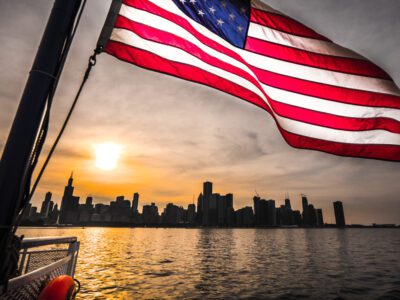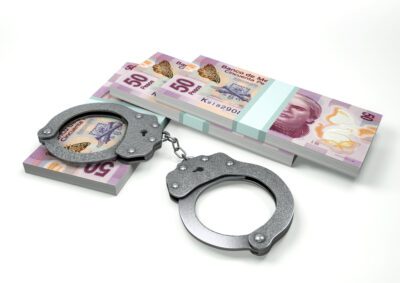Welcome to Casino Cabbie’s latest Letter From America, fresh off the press. This week we’re discussing DraftKings’ disastrous new player tax plans, Nebraska’s special betting session and asking, most appositely, whether U.S. regulators will ban betting on the upcoming presidential election.
Nebraska’s Special Betting Session
Lawmakers in Nebraska have initiated a special session–extending the regular legislative session–to discuss legalising online sports betting – in a bid to address the tax crisis in the Cornhusker State.
“The demand for sports betting is clear, and directing revenue to the property tax credit fund can create much-needed relief,” asserted pro-gambling proponent Senator Elito Bostar.
“Nebraska is currently missing out on US$32 million in state revenues. Thousands of Nebraskans are crossing state lines and supporting economies in those states.”
While there’s strong opposition to the proposed sports betting bill, there’s also growing evidence that internet betting is already active in the state.
GeoComply reportedly blocked over 4.5 million attempts to access sports betting in Nebraska between July 2023 and June 2024.
Will Nebraska become the first U.S. state to legalise online sports betting in 2024? The appetite is certainly there.
Backdraft For DraftKings
Prepare for the backlash. Leading fantasy sportsbook DraftKings has announced that it will add an additional levy to patron payouts in high-tax states.
The surprising announcement follows an online betting tax hike in Illinois, taking effect July 1, which increased operator tax rates from 15 percent to a maximum of 40 percent.
Many industry critics speculated that players would pay the price for this preemptive tax increase through less competitive products. But none foresaw an actual direct surcharge.
Confirmed DraftKings CEO Jason Robins: “We plan to implement a gaming tax surcharge in high-tax states with multiple mobile sports betting operators on January 1, 2025.”
The company has not released details of exactly how this surcharge would work; but did say it would be low, single-digit, and applied to winning bets.
Consumers reacted angrily to the news. And experts said the surcharge was a big mistake, and should be dumped.
It seems evident that DraftKings can only pull off this additional player levy if all operators follow their lead. But this has not been forthcoming.
We anticipate a sharp DraftKings U-turn on the levy very soon.
Watch this space!
To Bet or Not To Bet
Five Senators and three members of Congress have penned a letter to the Commodity Futures Trading Commission (CFTC) imploring the regulator to proceed with its proposed ban on election betting ahead of November’s U.S. presidential election.
The letter argues: “Election gambling fundamentally cheapens the sanctity of our democratic process. Political bets change the motivations behind each vote, replacing political convictions with financial calculations.
“Allowing billionaires to wager extraordinary bets while simultaneously contributing to a specific candidate or party, and political insiders to bet on elections using non-public information, will further degrade public trust in the electoral process.”
The letter further argues that allowing such election betting would leave regular Americans wondering if their vote mattered or if the upcoming election outcome “was influenced by big money bets”.
The CFTC’s proposed ban on election betting, which classifies the activity as “gaming”, is currently in the comment period.
Further action is expected later this month.
Tik.Tok…Boom
FanDuel has been named the latest U.S. operator facing a class action suit.
This time, the case lands in the US District Court for the Central District of California, where plaintiff Courtney Mitchener alleges the company has violated privacy laws by using “trap and trace” TikTok software on its website.
The case states that FanDuel uses “fingerprinting” technology to collect data on users who visit the site anonymously and link it with information already held by TikTok. The software can then allegedly identify the user, allowing for targeted advertising without their consent.
If true, this would violate California’s Trap and Trace laws, which protect consumers from unauthorised data collection.
The plaintiff seeks statutory damages and an injunction against FanDuel.
FanDuel has yet to comment.
Nevada: Best Year Yet
The Nevada Gaming Control Board has released revenue data for FY24, showing overall increases of 3.26 percent, year-over-year, making it Nevada’s biggest year to date.
Total gross gambling revenue for the year hit US$15.76 billion (₤12.35bn), representing the third consecutive record-breaking year for the state.
And total revenue is not the only record reached.
Las Vegas strip revenue and statewide slot win figures also reached new heights of US$9.1 billion (₤7.1bn) and US$10.3 billion (£8.03bn), respectively.
Brand Power
Meanwhile, in Washington D.C. FanDuel has wrapped up its stint as the city’s sole sports betting provider by releasing revenue figures, revealing the power of a good product.
The operator was the only available option between April 15 and July 15 this year, and took over 1.9 million bets, a handle of US$78.5 million (£61.6m) and revenue of US$13 million (£10.14m).
This generated some US$4.5 million (£3.5m) in taxes for the U.S. seat of power.
The figures far outstrip April-June 2023, when GamBetDC held the market monopoly, generating revenue of just US$1.5 million (£1.1m).




